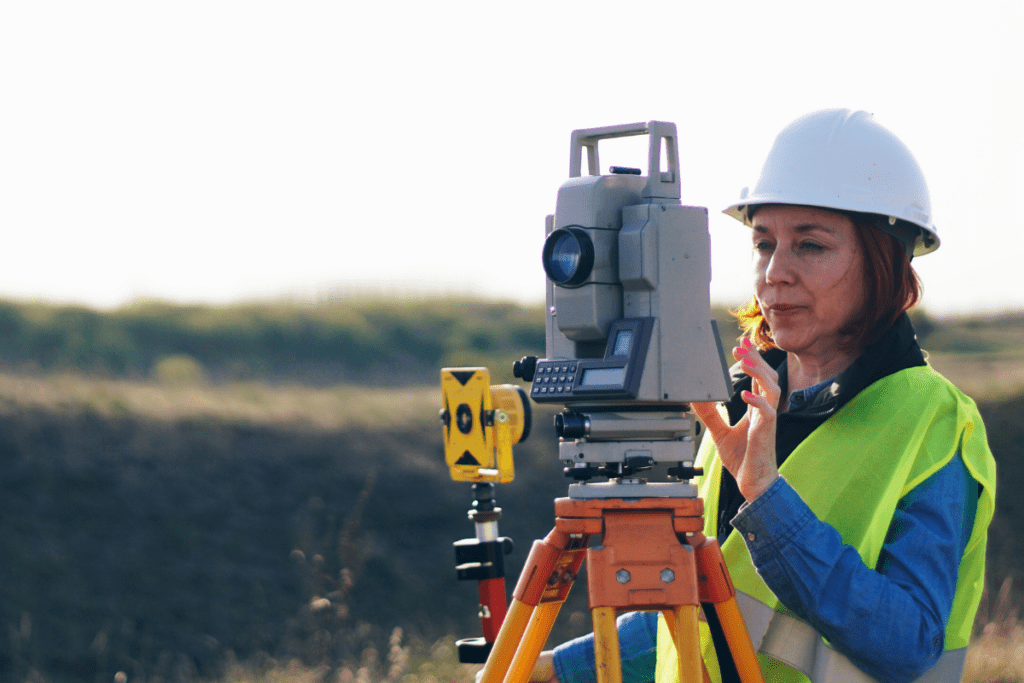There are lots of questions that come up when you’re investing in a property. But one of the most important ones that many people buying or selling a property, or simply looking to understand the condition of their home, ask is “Is my surveyor qualified’? It’s such an important question because, in the past, research found that a large number of surveyors’ reports missed significant defects. Although not all defects are easily visible, a qualified surveyor with lots of experience is much less likely to overlook these sorts of issues. Therefore, knowing your surveyor is qualified and holds the right level of knowledge and expertise can alleviate the feeling of dissatisfaction, and ultimately ensure you have a report that reflects the true condition of your property.
What qualifications should a surveyor have?
Qualifications in surveying sometimes can sound just like a load of random titles. But some of them can be extremely important. Especially if you require a surveyor to produce a legal document; for example, if you’re having your home valued or want to demonstrate the condition of your home for legal purposes, a RICS surveyor might be required to illustrate their competency and independence from other affiliations. But which qualifications do you need your surveyor to have and what do they all mean?

Typically, surveyors have academic qualifications. These usually involve a degree in surveying or a related discipline, providing the theoretical backbone. But in my opinion, the real knowledge comes from practical, hands-on experience. After academia, surveyors undergo rigorous training, often shadowing seasoned professionals. This phase is crucial, as it’s where book knowledge transforms into practical, real-world problem-solving skills.
RICS membership: What is it and what does it mean?
Attaining membership in the Royal Institution of Chartered Surveyors (RICS) is probably one of the most important things to look for in your surveyor. RICS is internationally recognised, upholding standards that demand the highest level of professionalism and ethical conduct. When a surveyor is RICS-certified, it’s an assurance to clients that they are dealing with someone who is liable to these high standards as well as ongoing training. It’s often peace of mind for anyone contracting a surveyor to know that they’re RICS qualified, as they’re also impartial and provide legally binding reports.
Different types of surveyors and their qualifications
There are lots of different types of surveyors, with many overlapping roles and qualifications. But here’s a basic breakdown to let you know the role they play and what qualifications they need.
Building Surveyors
Building Surveyors are the experts you turn to for advice on property and construction. They handle building inspections, provide recommendations for maintenance, and oversee alterations and extensions. To qualify, they typically need a degree accredited by the Royal Institution of Chartered Surveyors (RICS), followed by a period of structured training and passing the Assessment of Professional Competence (APC).
Quantity Surveyors
Quantity Surveyors are usually more aligned with understanding finance in the construction industry. They estimate and control costs for construction projects, ensuring budgets are used effectively. The educational pathway usually involves a university degree in quantity surveying, accredited by RICS. After their degree, they also undergo the APC to gain chartered status.
Land Surveyors
Land Surveyors, also known as Geomatics Surveyors, specialise in measuring and mapping the environment. Their work informs land development, property boundary determination, and map-making. Qualifications usually involve a degree in surveying, geomatics, or civil engineering. Professional recognition can be obtained through RICS or the Chartered Institution of Civil Engineering Surveyors (CICES).

Valuation Surveyors
Valuation Surveyors specialise in estimating the value of real estate. This is crucial for sales, taxation, and mortgage purposes. A degree in real estate or property management, accredited by RICS, is the usual route, followed by the APC to achieve chartered status.
Commercial Property Surveyors
Commercial Property Surveyors focus on commercial properties, dealing with leasing, selling, and managing these assets. They typically hold a degree in real estate or a related field, accredited by RICS, and achieve chartered status through the APC.
Residential Property Surveyors
Residential Property Surveyors work with residential properties, handling valuations, surveys, and property management. Like others, they need a RICS-accredited degree and must complete the APC.
Each type of surveyor has a slightly different pathway to the role, although many surveyors may be qualified to do more than one type of surveying. As you can see, many qualifications involve RICS training and membership to be considered ‘chartered’ status. Although it’s not always essential to have RICS membership, it’s one of the key signs to look out for if you’re wondering if your surveyor is qualified.
Here are some more key signs below.
How to check if your surveyor is qualified
Choosing your surveyor based on qualifications is a good idea. First of all, I always recommend reading other people’s reviews though. It’s good to know that other people have had good experiences with your surveyor, and they’re both friendly and professional.

But if you want to know if your surveyor is qualified, there are several effective ways to check a surveyor’s qualifications:
- Direct inquiry: Start by asking the surveyor for their qualifications. A reputable professional will be transparent and willing to share this information. Lots of surveyors will also have badges, memberships, awards etc. displayed on their website, or declare their RICS status (for example) on their ‘About Us’ section – like we do at CJ Bloor.
- Check with professional bodies: You can also check with institutions like the Royal Institution of Chartered Surveyors (RICS), who maintain databases of their members. Verifying with RICS not only confirms the surveyor’s qualifications but also their adherence to professional and ethical standards.
- References and reviews: As I’ve previously mentioned, don’t underestimate the power of word-of-mouth and online reviews. Past client experiences can provide insights into a surveyor’s professionalism and reliability.
- Government and regulatory bodies: In some cases, local government websites or regulatory bodies may also provide information on licensed surveyors.
There are other things to look out for beyond qualifications, and we’ve got a guide on how to choose a surveyor full of tips!
Red flags to watch out for
These don’t come up too often to be honest. Most surveyors typically undergo the necessary training to be adequately qualified. But it’s always worth being mindful of some instances. So when verifying a surveyor’s qualifications, be mindful of the following red flags:
- Hesitance to share information: A qualified surveyor should have no issue in sharing their credentials. If they are reluctant or evasive, it’s a warning sign.
- Inconsistencies in information: If you notice discrepancies between what the surveyor claims and what you find from other sources, this should raise concerns.
- Lack of recognition by professional bodies: If a surveyor claims to be qualified but is not recognised by relevant professional bodies like RICS, this is a significant red flag.
- Overpromising or unrealistic guarantees: Beware of surveyors who make promises that seem too good to be true or aren’t in line with standard practices. For instance if there’s promises to check every inch of your home, or not being clear with what’s going to be covered in the report, this isn’t great.
- Lack of references or poor reviews: A lack of positive testimonials or a pattern of negative reviews can indicate problems with a surveyor’s service and reliability. You want to make sure you’re going with someone who’s reliable and less likely to encounter errors.
Asking yourself “Is my surveyor qualified?” isn’t something everyone automatically thinks to do. But it is important. If you’re trusting someone to tell you about the condition of your home, you want to make sure they have the knowledge, experience and expertise to back up their findings. That’s why looking out for RICS memberships and other forms of qualifications, as well as red flags, can be a good way to be diligent and ensure you’re getting high-quality service.
For more information on RICS surveying services, check out our Level 2 and Level 3 surveys.




